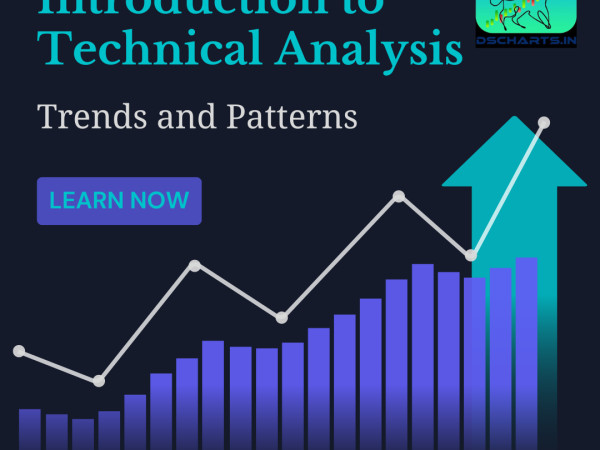Trading simply means buying and selling of goods, commodities, or services for which the buyer has to pay some compensatory money. Or one can also say the exchange of goods for money. In earlier days we saw such a scenario as the 'Barter System'. Trading or investing is to keep an ‘eagles eye watch' on the overall market. If we want to go for it, keep your one to one on the market. It sounds funny but it works. When we move to financial sectors then we invest money in various companies, brands, etc. which makes us an investor. Now as far as we understood what is trading? Let's move deeper into it and let's try to look for its factors, basics, risk management, winning trades, losing trades, etc.
What are the factors to consider?
So now lets come to see some of the factors which one should consider while opting for a traders background, as a trader, one should consider in which stock one should invest, in which company to invest for as it decides future investment and profits, one should also go for market analysis very minutely,
- Liquidity of the Stock- It means how easily one can convert its asset to a free form of money while choosing a stock. This liquidity should be chosen carefully.
- Free Cash Flow- how to utilize it to make more returns on available cash after investing?
- Return on Asset- some companies use their assets to make more dollars and some use the same assets to make double the margin dollar so one has to choose.
Trading as a profession!
There are various ways to opt for trading as a profession or career option
- Stock Broker for that one needs to have trading and Demat accounts and has to gain practical knowledge of market analysis. One can work for a securities broker to gain practical experiences and move on further to opt for his ventures or else can work for various stockbroker firms and can be promoted to higher ranks too.
- Research Analyst- Here you have to perform various analyses and research and assist managers in making decisions in various fund management. One can build its finance analyst center.
- Advisor financial- It is also a good option to go for and it's effective as all funds investments or investors are scrutinized and advised by them.
Understanding the basics of a trade!
The basis of trading is if one wants to go and get involved in it, first of all, make a Demat account. Deep research or a study of a particular market and its opposite entity too. What is the time taken for profit, what type of customers are required? Its relevant competitor, scope outside the Indian market. Return Equity is also taken as a basis as many companies take loans so return from equity should be analyzed. A close look at the international market, its profit, and loss through a series of time. Choosing the best stock for exchange or investment is important.
Position sizing & risk management!
There are various risks associated with trading and managing too. Let us move into it there are market risk, credit risk, liquidity risk, marginal risk, and many more. More and more risk management techniques are available to us. One can use it to shout out loud ways right, and yes bottom line traders need to be lined up for it.
- First of all, one should plan the trade or keep an eye watch on competitors.
- Win-Win attitude!
- One can consider 1 Percent Rule initially it means 1 percent should be invested per day.
- Calculate the profit-loss analysis by taking 5, 9, 20, 50, 100, average days.
- Don’t put all money in one bucket, share it with all buckets.
Winning trades & Losing trades. Why winning positions needn't necessarily be a good trade and vice versa.
Winning trades means a good profit ratio, applying a 1 percent rule, knowledge of in-depth market while losing trade means lack of knowledge, strong money management rules, stop loss position criteria to ensure the minimal loss, and maximizing profit. Winning trade positions is always not good trade as it sometimes does not use reasonable leverages and if a higher return goes for equity it means something is fishy or incorrect going on. But knowledge, experience, and efforts lead to success. Another point is learning stock market trade is two to five years of experience. There is no substitute or shortcut to become a professional trader. Profit to loss ratio of 2:1 which means for every 200 you make per trade a loss of 100 is made, many suggest this initially.
Betting on a trade - Attitude & psychology!
Coming to betting on trade and its attitude and psychology coming to this point there should be a must-win attitude and yes sometimes if it does not play your part of the card it creates a misappropriate psychology which indeed should not be. All pose their attitude and management towards it. But yes if you are into it betting is for sure as if u don’t bet you can't think of even winning your part. It should have a commanding attitude, strategy for investing, never stop learning, observing points, planning, and faithfulness towards partners. Remember the market does not always remain in defined terms and conditions it changes with taste, time, thinking. So the trader should also be volatile and quick changing in its stock market
Conclusion
So concluding to all the points said above it is recommended that go for trading if you have a family background, self-motivation or you can say much interest in it. It works and takes you to success. Some reasonable attitude hard work can lead to considerable and dramatic good leads in the market. One more point to remember: always try to trade with proven as well as good trading models. In the market, many research books are available to make your mind into trade-oriented. Once you get into it, it will come up with clean and real fundamental knowledge of the trade. You get experienced through time no one can stop you from reaching the highest point of trading. Trade is a magical world.






